Post
A catch
Save a catch to start your fishing logbook. You will be able to to share it with the community if yo want!
A fishing trip
Post an ad to go fishing with other fishermen
Save a catch to start your fishing logbook. You will be able to to share it with the community if yo want!
Post an ad to go fishing with other fishermen
Share a thought, a question with the community
My favorite cities
×Join our 1554 fishermen and our 93 cofishermen in St-Mary-in-the-Marsh in Kent. The fishing forecast is currently 3.3. The most caught fishes here are the halibut fish, the pollack fish, the dab fish and the mackerel fish. Come try the most famous fishing techniques like the fishing bream from a dock or jetty, tips on material for support fishing for sea bream, boat fishing for bass or deep-sea fishing.
Our fishing forecast of St Mary in the Marsh indicates the best time to go fishing in this city.
The Halibut fish
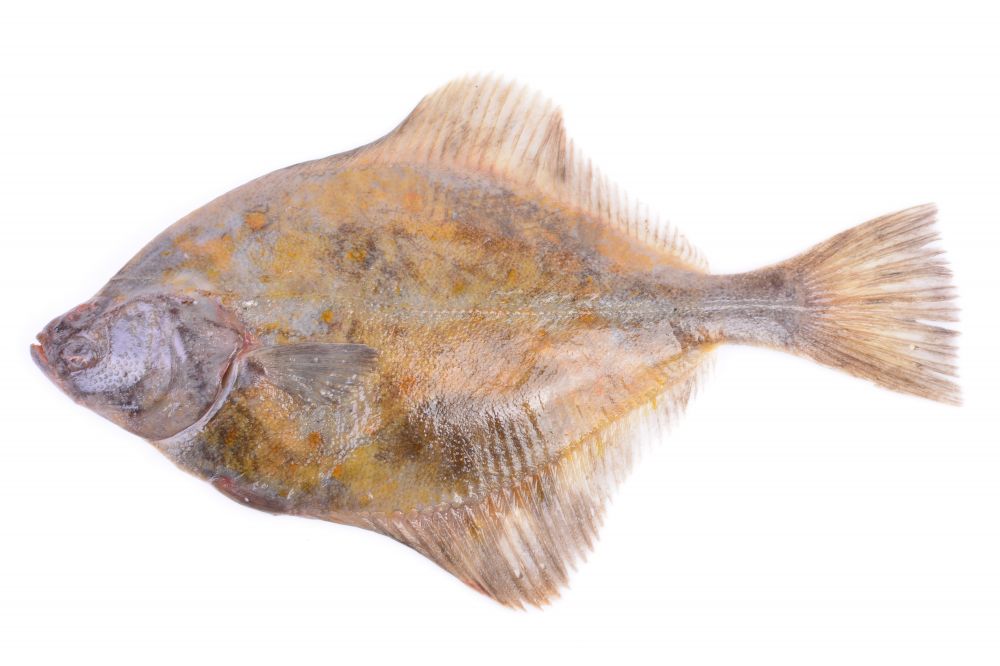
The Halibut fish belongs to the Pleuronectidae family. It can measure up to 4 m, weigh more than 100 kg and live to be 50 years old. It breeds from February to May and lays up to one million eggs. the fishing season is open from March to November. Halibut is a flatfish of the Pleuronectidae family. Like all fish in this family, its eyes are both located on the right side of his head (dexter fish), with the left side blind and unpigmented facing the ground. Its body is elongated, its lateral line strongly arched in the pectoral region, its mouth wide, its teeth curved and its tail concave. The color of its right flank (upper flank) varies from greenish grey to dark brown, while its left flank ranges from white to pale grey.
The Halibut fish is a famous fish you can catch in St Mary in the Marsh.The Pollack fish
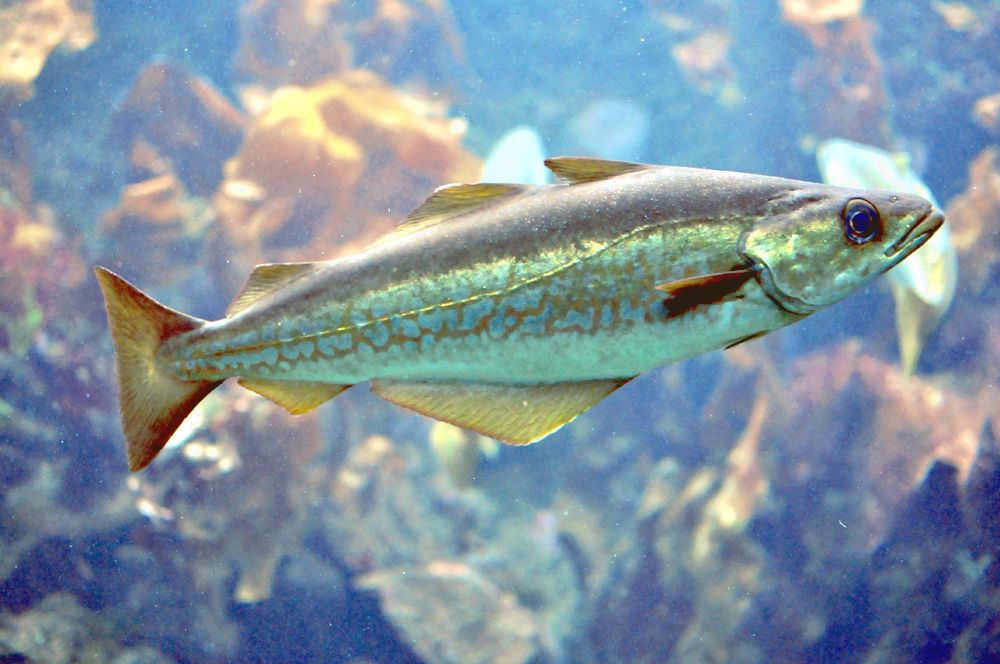
The Pollack fish belongs to the Gadidae family. Its size can reach 1.40 m for an average of 60 to 80 cm. The Pollack grows very quickly and lives between 8 and 10 years, while most pelagic fish have a lifespan of more than 20 years. Reproduction takes place in February March. Fertility can reach 4 million eggs. It can be fished all year round. Elongated body, covered with small scales, orange-yellow color, darker on the back, marbled in young individuals, bright yellowish white in adults. Prominent lower jaw, big eye. The dark-colored lateral line is curved at the pectoral fins, which makes it easily distinguishable from the black locus (Pollachius virens) in which it is straight. The Pollack, like many Gadidae, has three clearly triangular dorsal fins and two anal fins. It is one of the few Gadidae that does not have chin barbells. Juveniles are rather reddish brown with longitudinal stripes of blue-grey.
The Pollack fish is a famous fish you can catch in St Mary in the Marsh.The Dab fish
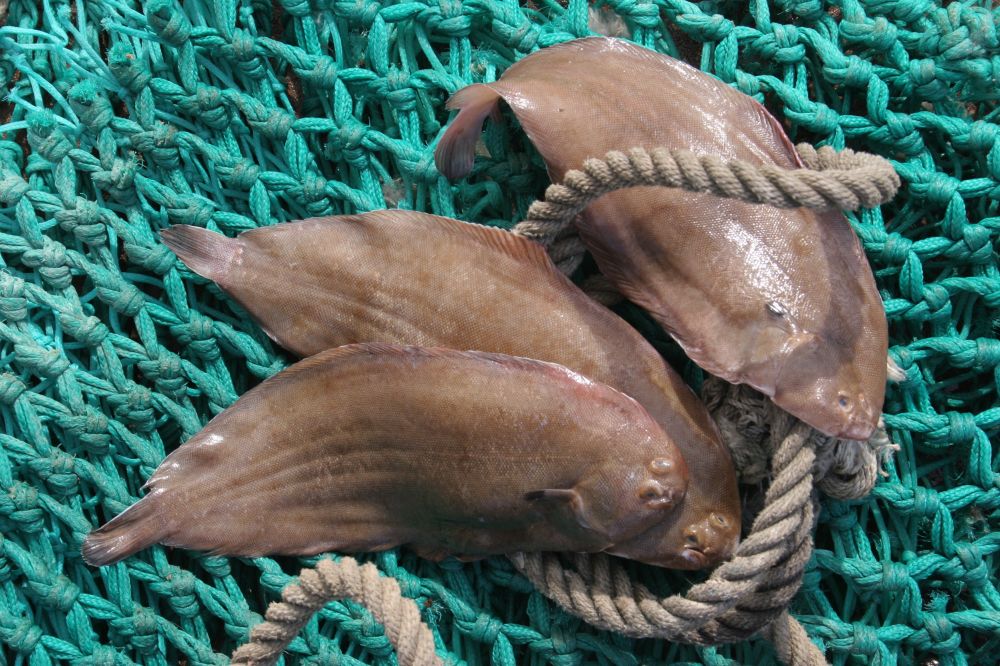
The Dab fish belongs to the Pleuronectidae family. It has an average size of 25 to 40 cm with an average weight of 1 kg. It has a lifespan of 12 years. The Dab fish breeds from February to April. The female lay up to 150,000 oocytes. The Dab fishing is open from October to Mars. the minimum catch size is 25 cm. The Dab fish, scientifically named Limanda Limanda, is a teleosteal species that belongs to the pleuronectidae or flatfish family. It has a flattened body with a more or less oval shape. The eyes of this dexterous fish are both generally located on the right side. The animal has a tiny mouth with small teeth. Its lateral line is curved at the pectoral fin. A characteristic feature that allows it to be easily distinguished from other species with similar morphology such as flounder. Thin scales cover the upper surface of the flounder, making its skin rough to the touch. The back is golden or yellowish brown in color and has dark spots. The belly or blind face is white. Varying from beige to light brown, the general color of dab allows it to blend in with the backgrounds.
The Dab fish is a famous fish you can catch in St Mary in the Marsh.The Mackerel fish
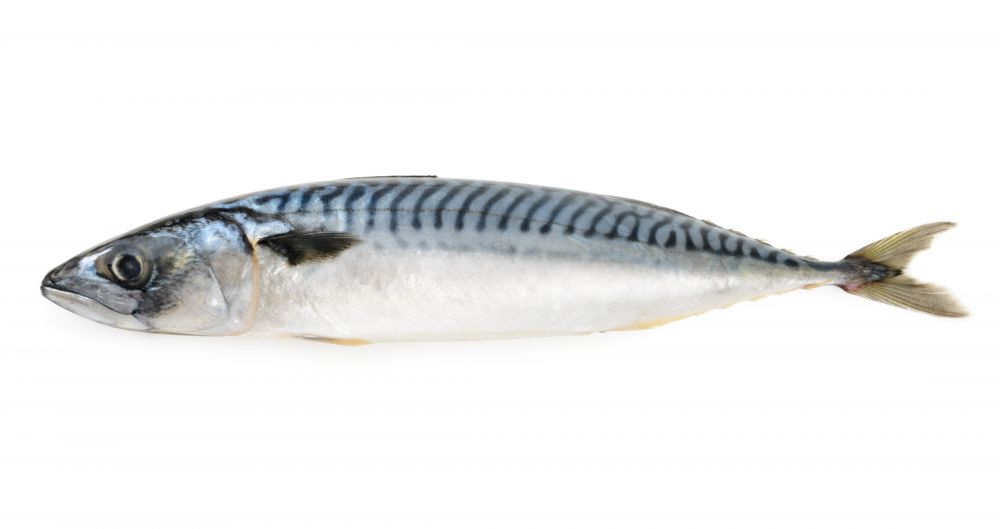
The Mackerel fish belongs to the Scombridae family. The average size of adult mackerel is 30 to 40 cm and its weight ranges from 500 g to exceptionally 1.5 kg. It can live up to 17 years. It reproduces from March to September. The female can lay 450000 eggs. It can be fished all year round. The streamlined body and pointed head of the mackerel, give it an excellent swimming quality (up to 10 km/h). The characteristic feature of mackerel is its blue-green back zebra with more or less oblique and parallel dark lines, while the sides and belly are silvery white. There are 23 to 33 dark chevrons depending on the individual and include the forehead between the two eyes. The fins of mackerel are grey. It has two widely spaced dorsal fins, the first being characterized by 10 to 13 thorny rays. In addition, it also has two pectoral fins (dark based), two ventral, one anal and one caudal. The caudal is preceded by 5 small feathered fins on the dorsal and ventral sides called pinnules. The tail is very indented.
The Mackerel fish is a famous fish you can catch in St Mary in the Marsh.The Cod fish
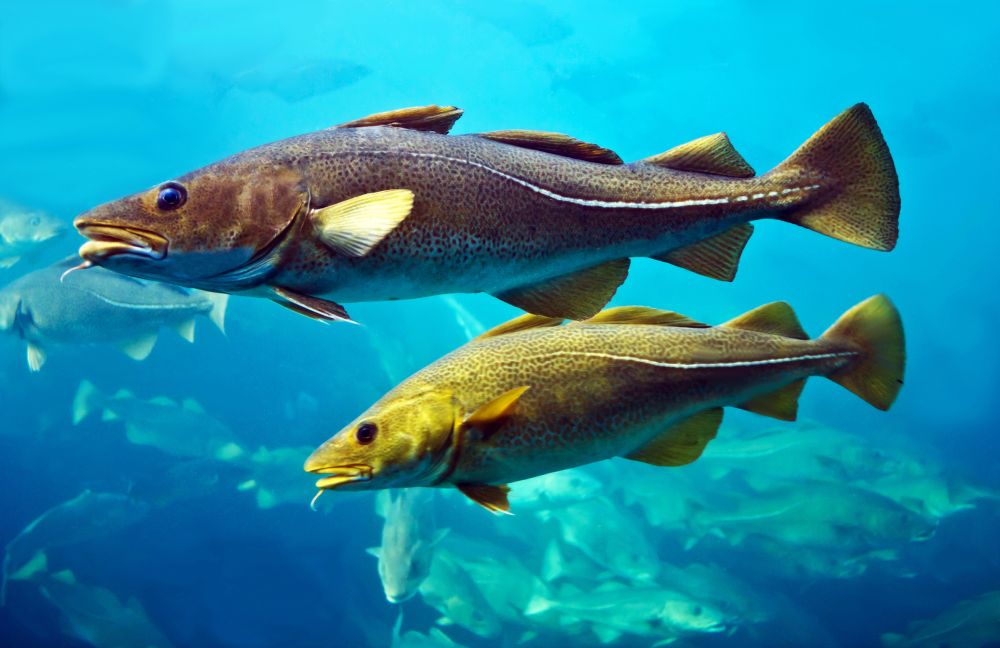
The Cod fish belongs to the Gadidae family. The Cod fish measure between 50 and 90 cm on average but can reach 1.80 metres for 40 kg and a maximum weight of 95.5 kg in some specimens. It can live up to 25 years. It reproduces from February to April. The female can lay 500,000 eggs. It can be fished all year round but productivity is better in March, April and October, November. Its elongated body is covered with small scales. The muzzle is relatively elongated, slightly prominent, conical and obtuse. A large mouth with the posterior edge reaching one third of the eye. There are many small teeth in each jaw. Presence of a barbel under the jaw. It has three dorsal fins and two anal fins. The pale lateral line is curved in the first 2/5 of the body. The body cavity is lined with a grey or silvery membrane and has small black, brown or red spots on the sides and back. The color varies according to the habitat and diet.
The Cod fish is a famous fish you can catch in St Mary in the Marsh.Our fishing forecast of St Mary in the Marsh indicates the best time to go fishing in this city.
Our fishing forecast of St Mary in the Marsh indicates the best time to go fishing in this city.
Our fishing forecast of St Mary in the Marsh indicates the best time to go fishing in this city.
